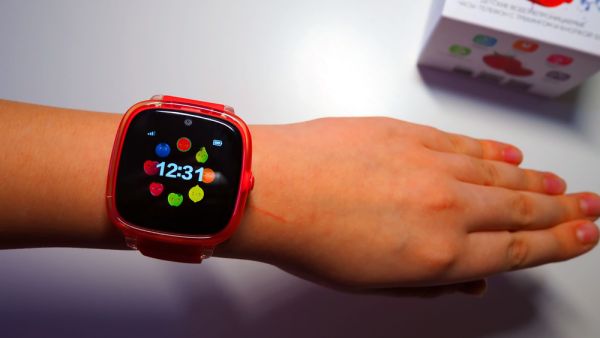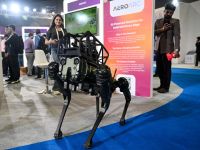ALBAWBA - Dr. Rula Sharqi, a lecturer at Heriot-Watt University in Dubai, has participated in developing what is believed to be the world’s first smart bracelet for children. This device is capable of monitoring a child's vital signs around the clock, with the ability to send text alerts to parents in emergencies and sound an alarm with emergency services.
Dr. Rula Sharqi spent the past 12 months working on the "Little Guard" project in collaboration with Nakhol Kalaivanan, a fourth-year robotics engineering student at Heriot-Watt University, who joined the project as part of his final year studies.
After building a successful prototype, the duo says they are ready to present their idea to an industrial partner capable of bringing this innovation to market.

Dr. Rula Sharqi stated, “We truly believe in this product and its potential to save lives. Uncontrolled fever is a major cause of infant mortality, making it a very serious issue. We would be happy to present our work to a company with the expertise and passion to bring this product to market.”
The inspiration for developing the smart bracelet came in 2018 when Dr. Rula was caring for her two-year-old son, Yousef, who had a fever due to seasonal flu. The repeated trips from her son’s bedroom to measure his temperature over three days and nights left Dr. Rula exhausted. Fever usually worsens at night due to the body’s temperature rising in the evening as a result of a weakened immune system.
As a result, any fever becomes more serious during the night, making night-time monitoring crucial to ensure the child’s health and prevent the situation from worsening.
Dr. Rula Sharqi explained, “From my experience as a full-time working mother, it can be extremely difficult to balance daily household challenges and a job. This was particularly true when my son had a fever due to the flu virus over two nights. It is common for children and often exhausting for parents who must check on the child regularly, causing sleep loss and fatigue.”
Through this challenging experience, the idea of a device that could notify her via text messages when her child’s temperature rose or fell beyond safe levels came to her mind. The smart bracelet monitors body temperature, oxygen levels, and pulse rate through a set of advanced nano-sensors. While similar products from major companies are available on the market, this smart bracelet is the first that can also monitor the child’s temperature.
The bracelet can be placed directly on the child’s skin as it is made from soft fabric and enhanced with very precise sensors, providing continuous accurate readings. It is wireless and currently operates with a rechargeable battery expected to last about six months on a single charge.
In addition to monitoring vital signs, the device has a unique capability to send text alert messages directly to parents and even request emergency services. This ensures immediate response and support, providing an additional layer of safety for the child’s health and well-being.
When vital sign readings exceed safe limits, the application sends an email or notification to the parents. There is also an option to send the same alert to the family doctor to ensure real-time information in case medical care is needed.
Nakhol Kalaivanan, in his final year of pursuing a Bachelor’s degree (with honors) in Autonomous and Interactive Robotic Systems, said, “Thanks to the design of this bracelet, there will be no incorrect readings as the sensors are placed directly on the skin. It is also a safer option for children as it is made from soft fabric, and we have used advanced sensors integrated into our design.”
On International Women in Engineering Day, observed on June 23 each year, Dr. Engineer Rula Sharqi at Heriot-Watt University looks forward to partnering with companies to bring the smart wristband she developed in collaboration with student Nakhol Kalaivanan to market.







